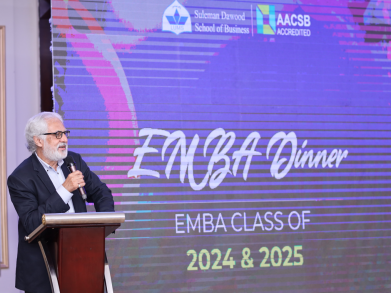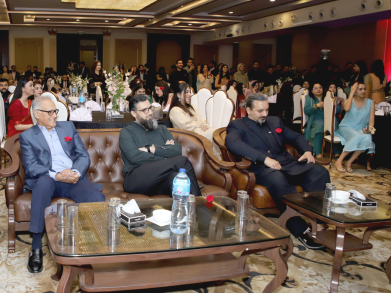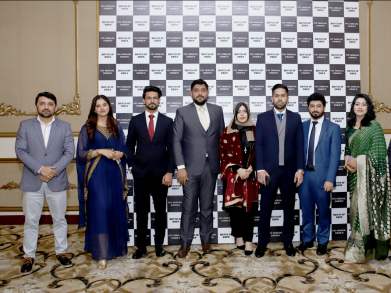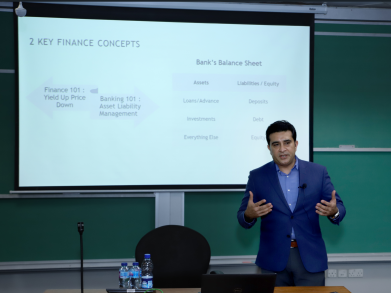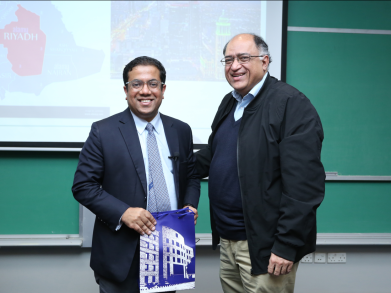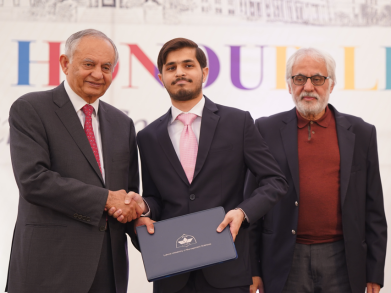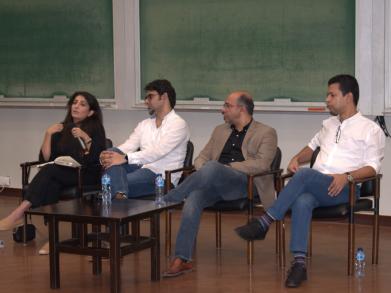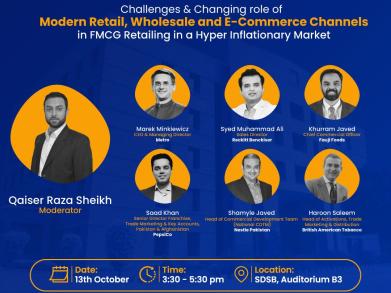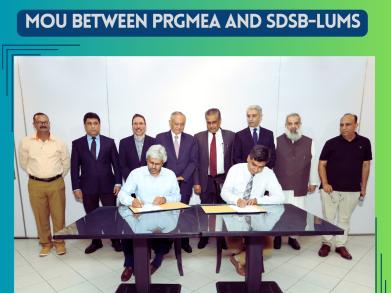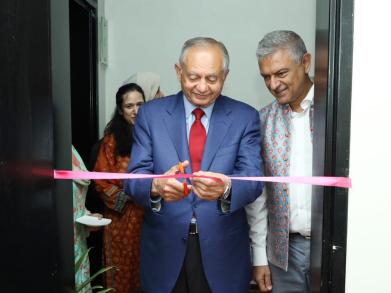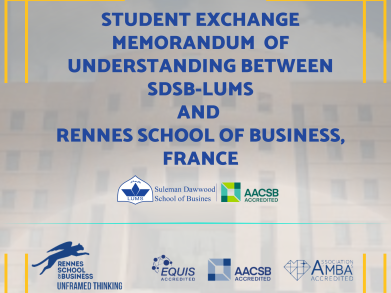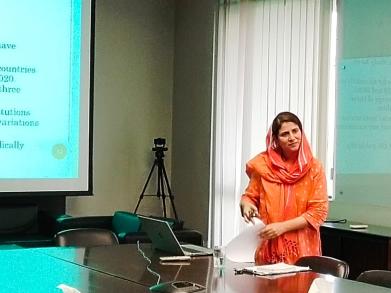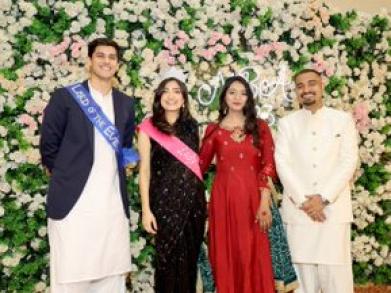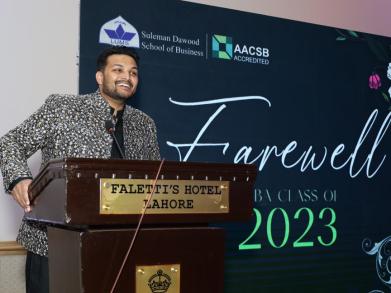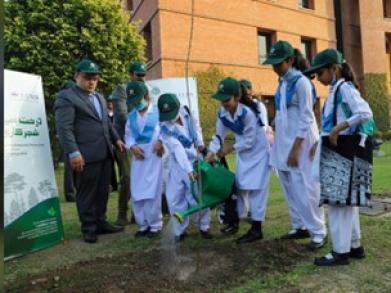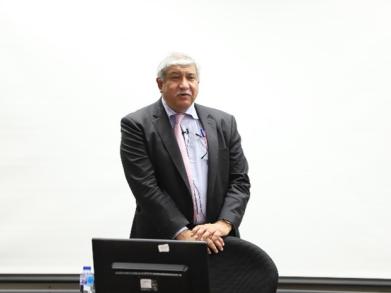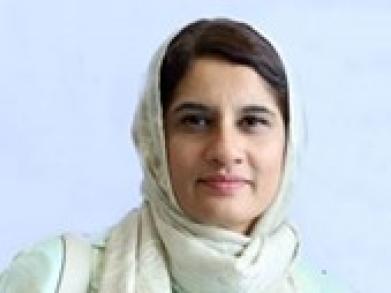LUMS Vice Chancellor Gives Training to UMT Faculty on ‘Making Teaching Count’
At a faculty capacity building workshop organised by the University of Management and Technology (UMT), Lahore, Dr. Arshad Ahmad, Vice Chancellor, LUMS, shed light on the importance of inter-institutional collaborations and explained that for any university, the most important stakeholder is the faculty.
Dr. Ahmad’s presentation primarily focused on his experiences of how universities can ‘make teaching count’. “If you look at the mission of any university in the world, irrespective of culture, context, location, geography, it is to create knowledge and disseminate it. This is done by the faculty members and this is why the core mission of the university rests on them.” Faculty members are productivity drivers, he elaborated, and universities need to pay attention to them in the realm of research and teaching.
Dr. Ahmad also discussed the necessity of having a teaching excellence framework. He questioned whether student evaluation instruments used to rate teachers at universities are valid and reliable, and whether they measure satisfaction or learning. Can students do justice in trying to capture the complex phenomenon of learning through an evaluation form, he asked. “Looking at one rating is not sufficient to determine how excellent or average an instructor is. Thus, this instrument should be used as one data point, and we must contexualise it. Feedback and assessment are important. But the question is, will you use that feedback to improve or to judge.”
Another way in which superior teaching can be encouraged in universities is by introducing teaching awards, he added. At LUMS, the Vice Chancellor’s Awards for Teaching Excellence has been inaugurated this year to celebrate exceptional and inspirational teachers. The award recognises faculty members for their contributions to significantly enhance the quality of their students’ learning experiences. According to Dr. Ahmad, such awards form a community of educational leaders who have already proven themselves as pedagogical experts and mentors to both students and to their peers.
“If you set a standard that is very high, you are automatically serving the university by establishing what makes teaching count. This is an example of how holistically you can look at a person’s contributions to teaching excellence. Awards should also be the basis on which you form your tenure and promotion policies,” he explained.
The role of teaching and learning centres was also discussed. Dr. Ahmad spoke at length about the LUMS Learning Institute (LLI), which is “quasi scholarly and quasi service”. He shared that the LLI focuses on faculty development by holding workshops on instructional and pedagogical skills training, as well as how to design courses. To be inclusive and accessible to a wider audience, Dr. Ahmad also spoke about LUMSx, an initiative that harnesses digital technologies and innovative pedagogies for open learning.
He added that LUMS has also engaged students in a University-wide partnership programme with faculty and staff to work together on a range of teaching and learning projects. “You cannot engage in any teaching intervention unless your audience, your students, become your partners. They are one of the most important partnerships we have in research. So why don’t they co-write articles, co-design courses as well as collect data and present at conferences?” he said.
Also discussed during the workshop was the importance of peer review and reliable metrics for the evaluation of excellent teaching, and the scholarship of teaching and learning.
The interactive workshop ended with a QnA session.





